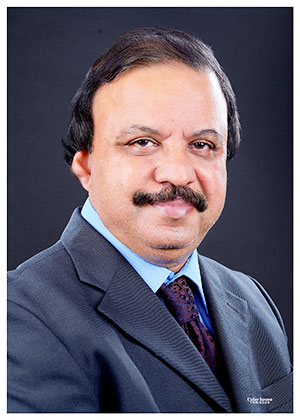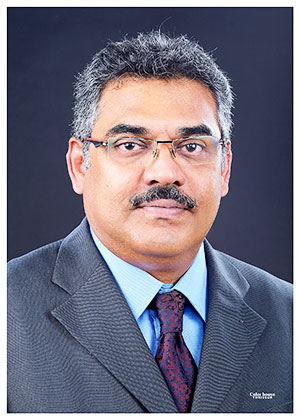Jaw reconstruction surgery in Kerala combines world-class expertise, cutting-edge technology, and affordable pricing—all set against Kerala’s soothing backdrops. From complex microvascular grafts to orthognathic corrections, expert teams bring together decades of experience and state-of-the-art infrastructure to restore function and aesthetics to patients’ lives. In this blog, we’ll explore the indications, step-by-step procedure, recovery timeline, patient experience, and practical tips for planning your journey—ensuring you feel informed, inspired, and ready to take the next step toward a healthier, happier smile.
Understanding Jaw Reconstruction Surgery
What Is Jaw Reconstruction?
Jaw reconstruction refers to surgical procedures aimed at restoring the anatomy, function, and aesthetics of the jaw following congenital defects, trauma, tumor removal, or severe deformities. It often involves osteotomies (bone cuts), bone grafts, microvascular free-flap transfers, and fixation with titanium plates and screws to achieve a stable and well-aligned jaw.
Common Indications
-
Traumatic Injuries: Fractures from accidents requiring stabilization and reconstruction.
-
Tumor Resection: After removal of benign or malignant lesions in the jawbone.
-
Congenital Deformities: Conditions like cleft lip/palate or craniofacial syndromes needing surgical correction.
-
Orthognathic (Corrective) Surgery: To correct bite misalignment, improve chewing, speech, and facial balance.
Why Choose Kerala for Jaw Reconstruction
Accredited, High-Volume Centres
Kerala boasts NABH-accredited hospitals and specialized centres, known for their expertise in plastic and reconstructive surgeries.
Expert Multidisciplinary Teams
In Kerala, a team of highly skilled consultants in microvascular surgery, craniofacial reconstruction, and hand/microvascular techniques collaborate to design individualized treatment plans.
Advanced Technology & Facilities
-
Carl Zeiss high-magnification optics for refined microvascular anastomosis
-
Glue-assisted nerve coaptation to enhance nerve repair outcomes
-
Negative pressure wound therapy (NPWT) for optimized healing in complex reconstructions
-
Separate operating theaters for plastic surgery and dedicated microsurgery setups
Cost-Effectiveness & Medical Tourism
Kerala’s surgical costs are up to 50% lower than Western rates without compromising quality, making it a popular destination for medical tourists seeking jaw reconstruction. Orthognathic surgery packages start around ₹43,662, inclusive of surgeon’s fees, operating room charges, and hospital stay.
Healing Environment
Beyond medical care, Kerala’s lush backwaters, Ayurvedic wellness therapies, and tranquil beaches offer an ideal setting for recuperation—bridging Western surgical precision with Eastern holistic healing.
Meet the Team
While specific names have been omitted, teams typically include:
-
Board-certified plastic and reconstructive surgeons with international training
-
Microvascular specialists skilled in free-flap transfers
-
Craniofacial surgeons experienced in corrective jaw procedures
-
Anesthesiologists, critical-care nurses, physiotherapists, and speech therapists providing comprehensive support
Step-by-Step: The Jaw Reconstruction Journey
1. Initial Consultation & Planning
-
Comprehensive evaluation: clinical exam, dental impressions, and 3D CT imaging to map bone defects and plan osteotomies
-
Virtual surgical planning (VSP): CAD/CAM models for precise cutting guides and patient-specific plates
-
Multidisciplinary review: surgeons, anesthesiologists, and rehabilitation therapists finalize the protocol
2. Day of Surgery
-
Anesthesia & positioning: general anesthesia with fiberoptic nasal intubation for airway security
-
Osteotomy or graft harvest: bone grafts—commonly from fibula or iliac crest—harvested with microvascular pedicles
-
Reconstruction & fixation: free-flap transfer under high-magnification optics; rigid fixation with titanium hardware
-
Soft-tissue closure: layered closure to optimize aesthetics and minimize scarring
3. Immediate Post-Op Care
-
ICU monitoring: flap perfusion checks, pain management, and antibiotics to prevent infection
-
Early nutrition: nasogastric feeds transitioning to a soft diet by day 5–7
-
Physiotherapy & speech therapy: begins within the first week to maintain joint mobility and speech function
Recovery & Rehabilitation
Hospital Stay & Follow-Up
-
Typical stay: 7–10 days for uncomplicated cases; longer if additional treatments (e.g., radiotherapy) are needed
-
Stitch removal: around day 10–14
-
Early follow-up: weekly for the first month, then monthly up to 6 months
Functional Milestones
-
Weeks 1–4: pain subsides; controlled soft-food diet; gentle jaw exercises
-
Months 1–3: return to normal diet; continued physiotherapy for maximal mouth opening
-
Months 3–6+: final bone healing; hardware usually permanent unless complications arise
Frequently Asked Questions
1. What is jaw reconstruction surgery at Sushrutha Institute of Plastic, Reconstructive & Aesthetic Surgery?
Jaw reconstruction at Sushrutha Institute is a specialized procedure to restore both form and function of the jaw using advanced microvascular grafts, osteotomies, and precise bone fixation techniques.
2. How much does jaw reconstruction surgery cost at Sushrutha Institute of Plastic, Reconstructive & Aesthetic Surgery?
Costs typically range from ₹1,33,000 to ₹2,47,000 depending on the complexity of your case. A personalized quote is provided after the initial evaluation.
3. What technologies are used for jaw reconstruction at Sushrutha Institute of Plastic, Reconstructive & Aesthetic Surgery?
We employ Carl Zeiss high-magnification optics, glue-assisted nerve coaptation, negative pressure wound therapy, plus virtual surgical planning with CAD/CAM guides and titanium fixation plates.
4. Who are the surgeons performing jaw reconstruction at Sushrutha Institute of Plastic, Reconstructive & Aesthetic Surgery?
A multidisciplinary team of board-certified plastic and reconstructive surgeons, craniofacial specialists, and microvascular experts collaborate on every jaw reconstruction case.
5. What is the expected recovery timeline after jaw reconstruction at Sushrutha Institute of Plastic, Reconstructive & Aesthetic Surgery?
Patients usually stay 7–10 days in hospital, start a soft diet by week 4, resume full chewing by weeks 8–12, and achieve final bone healing and symmetry by 6–12 months.
6. Does Sushrutha Institute of Plastic, Reconstructive & Aesthetic Surgery offer virtual surgical planning (VSP) for jaw reconstruction?
Yes. We use VSP and patient-specific CAD/CAM cutting guides to ensure precise bone cuts and optimal alignment before surgery.
7. Are there patient testimonials for jaw reconstruction at Sushrutha Institute of Plastic, Reconstructive & Aesthetic Surgery?
Absolutely. International and local patients share their success stories and before-and-after results on our website and during consultations.
8. What pre-operative tests are required at Sushrutha Institute of Plastic, Reconstructive & Aesthetic Surgery for jaw reconstruction?
Standard work-up includes 3D CT imaging, blood tests, dental impressions, anesthesia clearance, and any specialist consultations needed for your unique case.
9. Will my insurance cover jaw reconstruction surgery at Sushrutha Institute of Plastic, Reconstructive & Aesthetic Surgery?
Many insurers cover reconstructive (non-cosmetic) components. We provide detailed invoices and ICD codes to assist with your claim.
10. How can international patients schedule jaw reconstruction at Sushrutha Institute of Plastic, Reconstructive & Aesthetic Surgery?
International patients can contact us via email or phone to receive a medical visa invitation letter, discuss treatment plans, and arrange tele-consultations prior to travel.









